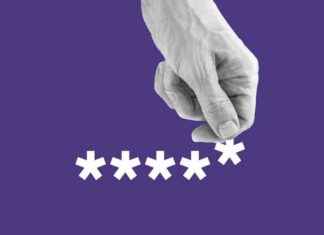Spanish deputies voted on Thursday March 14 for an amnesty law for Catalan separatists convicted or prosecuted for the aborted 2017 secession attempt in Catalonia, a key measure for socialist Prime Minister Pedro Sanchez, but very controversial.
Negotiated by Mr. Sanchez’s Socialist Party with the two Catalan independence parties, whose support is essential for him to be able to govern, the measure was adopted by 178 votes to 172, out of a total of 350 deputies.
It must now be submitted to the Senate, controlled by the right, fiercely opposed to this measure and which has promised to delay its examination as long as possible. The text will then have to return to the lower house and its final adoption is not expected before May.
This amnesty law is the most controversial text on which Parliament has had to decide since Mr. Sanchez came to power in 2018. Its approval constitutes a political success for Mr. Sanchez, who, however, did not spoke, entering the chamber just before the vote.
The vote took place in a climate of extreme tension between the left-wing government and the People’s Party (PP, the main right-wing opposition), who have been making accusations of corruption at each other for weeks. The PP and the far right consider this law a case of “corruption”.
End of prosecution
In a speech before the vote, PP leader Alberto Nuñez Feijoo launched a devastating attack on the measure, claiming that “this law divides Spain in two” and denouncing “an absolute absence of scruples and convictions” of the from Mr. Sanchez.
“This law will be approved because it is the only way Mr. Sanchez has to remain president of the government for a little while longer,” he continued. It “is not reconciliation” with Catalonia put forward by the government to justify it, “it is submission” to the separatists, he said.
The amnesty, which should benefit around four hundred people, aims to put an end to prosecutions and annul convictions arising from the events of 2017, when the Catalan regional government, chaired by Carles Puigdemont, unilaterally organized a referendum on illegal self-determination, the most serious political crisis in the contemporary history of Spain.
Showing very optimism, Mr. Puigdemont declared Wednesday evening to the press in the corridors of the European Parliament, of which he is a member, that the amnesty law would come into force “probably at the end of May” and envisaged his return to Catalonia in the weeks following.
Attempt at unilateral independence
Mr. Sanchez pardoned nine separatists convicted for their role in the events of 2017 three years ago, but assured during the campaign for the July legislative elections that he was opposed to an amnesty.
The electoral arithmetic, however, forced him to change his mind, because the results of the July 23 vote returned the support of the two Catalan independence parties – Together for Catalonia (Junts), of Mr. Puigdemont, who lives in exile in Belgium since 2017 to escape Spanish justice, and Republican Left of Catalonia (ERC) – essential to his return to power.
A first vote on an amnesty law took place on January 30, but it ended in a humiliating rejection for Mr. Sanchez, with the seven deputies from Mr. Puigdemont’s party voting against a text that they considered insufficient .
The fear of Mr. Puigdemont, who led the 2017 unilateral independence attempt and is still the subject of an arrest warrant, was that the bill, as it was then designed, would not protect him not against possible prosecution for terrorism or treason. The socialists therefore had to reopen negotiations and accede to the demands of the Junts.







